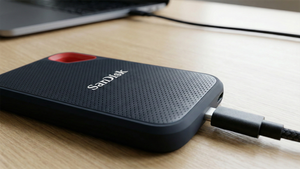Real-world data suggest Decipher test’s risk scores are independently associated with conversion to definitive treatment and with treatment failure
Veracyte, Inc. (Nasdaq: VCYT) today announced new data suggesting the Decipher® Prostate Biopsy genomic classifier (GC) may help guide treatment decisions for prostate cancer patients who are candidates for active surveillance (AS). The findings, from a retrospective analysis of data from the MUSIC registry, appear online in the journal Prostate Cancer and Prostatic Diseases (PCAN). They provide the first evidence that Decipher scores predict time to definitive treatment and time to treatment failure among men with early-stage prostate cancer.
“We believe this real-world study and the resulting findings fill a critical gap in prostate cancer treatment, which is the need for an objective tool that can help physicians identify those early-stage patients who are good candidates for active surveillance as well as those who should move directly to definitive treatment with surgery or radiotherapy,” said Elai Davicioni, Ph.D., Veracyte’s senior vice president, Scientific and Clinical Operations, Urologic Cancers.
MUSIC (Michigan Urological Surgery Improvement Collaborative) is a large, prospective, observational, statewide registry created to optimize urologic care across the state of Michigan. Between February 2015 and October 2019, 855 MUSIC registry participants with newly diagnosed prostate cancer underwent testing with the Decipher Prostate Biopsy test.
For the analysis published today, researchers retroactively reviewed the Decipher risk scores from these 855 men to evaluate the independent association of Decipher high scores with the time to conversion from AS to radical therapy (TTT) and the time to treatment failure (TTF; biochemical failure or receipt of salvage therapy).
Of the 241 evaluable patients who elected to undergo active surveillance, a high-risk Decipher score was independently associated with shorter TTT (HR 2.51, 95% CI 1.52-4.13, p<0.001). Men with high-risk scores spent significantly less time on AS than men with Decipher low/intermediate risk scores (13.6 months vs. 33 months; p<0.001). Similarly, among the 479 evaluable patients who underwent definitive treatment either initially or after a period of AS, those with a Decipher high-risk score had a significantly shorter TTF as compared to those with lower scores (p=0.007).
"We have long needed better risk stratification tools for early-stage prostate cancer patients to reduce the uncertainty that is often part of initial treatment decisions," said Randy Vince Jr., M.D., MS Society of Urologic Oncology (NCI T32) Fellow, University of Michigan, and the paper's lead author. "The findings from our analysis, which show that men with high Decipher scores are more likely to transition off of active surveillance and are over two-fold times more likely to experience treatment failure after initial therapy, provide evidence that molecular testing could have significant utility in this setting."
The Decipher Prostate genomic classifier is currently being investigated in seven National Cancer Institute-sponsored, Phase 3, prospective, randomized controlled clinical trials; 13 Phase 2/3 prospective trials; and more than 20 retrospective studies of Phase 3 randomized controlled trials. Many of these trials require Decipher Prostate testing for study inclusion.
Veracyte did not sponsor the MUSIC study nor play a role in the risk analysis.
About Decipher Prostate
Decipher Prostate (Decipher Prostate Biopsy and Decipher Prostate RP) is a 22-gene, whole-transcriptome-developed genomic test intended to help inform treatment decisions for men with localized prostate cancer at initial diagnosis and after surgical removal of the prostate. The test reports the Decipher Score, which prognosticates a patient's risk of metastasis within five years and provides risk estimates of prostate cancer-specific outcomes. Decipher Prostate can help guide physicians to better select the appropriate therapy for a specific patient, which in turn can result in improved patient outcomes.
About Veracyte
Veracyte (Nasdaq: VCYT) is a global genomic diagnostics company that improves patient care by providing answers to clinical questions, informing diagnosis and treatment decisions throughout the patient journey in cancer and other diseases. The company’s growing menu of genomic tests leverage advances in genomic science and technology, enabling patients to avoid risky, costly diagnostic procedures and quicken time to appropriate treatment. The company’s tests in lung cancer, prostate cancer, breast cancer, thyroid cancer, bladder cancer and idiopathic pulmonary fibrosis are available to patients and its lymphoma subtyping and renal cancer tests are in development. With Veracyte’s exclusive global license to a best-in-class diagnostics instrument platform, the company is positioned to deliver its tests to patients worldwide. Veracyte is based in South San Francisco, California. For more information, please visit www.veracyte.com and follow the company on Twitter (@veracyte).
Cautionary Note Regarding Forward-Looking Statements
This press release contains forward-looking statements, including, but not limited to, our statements related to our plans, objectives or expectations (financial and otherwise) regarding the Decipher Prostate Biopsy genomic classifier’s ability to provide prognostic information that can help guide treatment decisions for prostate cancer patients who are candidates for active surveillance. Forward-looking statements can be identified by words such as: "anticipate," "intend," "plan," "expect," "believe," "should," “suggest,” "may," "will" and similar references to future periods. Actual results may differ materially from those projected or suggested in any forward-looking statements. These statements involve risks and uncertainties, which could cause actual results to differ materially from our predictions, and include, but are not limited to: Veracyte’s ability to achieve and maintain Medicare coverage for its tests; the benefits of Veracyte’s tests and the applicability of clinical results to actual outcomes. Additional factors that may impact these forward-looking statements can be found under the caption “Risk Factors” in our Annual Report on Form 10-K filed with the SEC on February 22, 2021, and our subsequent quarterly reports on Form 10-Q. A copy of these documents can be found at the Investors section of our website at www.veracyte.com. These forward-looking statements speak only as of the date hereof and, except as required by law, Veracyte specifically disclaims any obligation to update these forward-looking statements or reasons why actual results might differ, whether as a result of new information, future events or otherwise.
Veracyte, the Veracyte logo, Decipher, Decipher GRID, Afirma, Percepta, Envisia, Prosigna, Lymphmark, “Know by Design” and “More about You” are registered trademarks of Veracyte, Inc. and its affiliates in the U.S. and selected countries.
View source version on businesswire.com: https://www.businesswire.com/news/home/20210727006066/en/
Contacts
Tracy Morris
Vice President of Corporate Communications
& Investor Relations
tracy.morris@veracyte.com
650-380-4413





